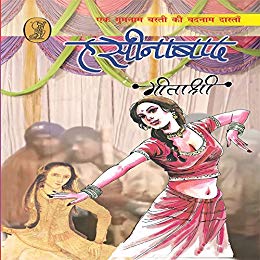Novel Hasinabad covers a long socio-political span from the 1960s to the first decade of the new millennium—a journey from ‘Hasinabad’ to ‘Hussainabad’. While the writer has a firm grip on the representation of Hasinabad, a colony of concubines set up by the zamindars of Bihar, she loses that hold when the place gets transformed to Hussainabad, under pressure of democracy finally making inroads into the interiors.
Hasinabad is a hidden alley, a black hole from where none of its resident women can escape; it is a place of expressionless eyes, a place full of body-odour as the writer puts it, a place of that dark truth which is covered with ignominy, not even lies. Daughters of mistresses become mistresses, sons become strongmen for the zamindars. It is not a general ‘red light district’ of the city where some possibility of chaos or escape exists; it is a citadel of dark lust where lives rust and where status quo is a must—an old trick of the ruling elite. The writer says, ‘The “hasinas”of Hasinabad suffered under the yoke of their immeasurable pain. The “hasinas” remained “hasin” only for a brief while, and then got transformed into ruins and rubble’ (p. 33; translation mine).
Sundari is abducted from a field while still a teenager, and lands up in Hasinabad, on the bed of Thakur Sajawal Singh. With her beauty, she is able to wield some power over him; he is unable to abandon her even after the birth of two children, a girl and a boy. He ‘keeps’ her well-fed and in luxury; however, she is anxious about her daughter’s future—that she too would land up on a thakur’s bed as a ‘keep’. There is no room to run; if she gets caught, she would probably be hung on the village square. However, as Leonard Cohen puts it, ‘There is a crack in everything, that’s how the light gets in.’ A bhajan-mandali comes to the village, and one of the percussionists espies Sundari. There are many in the group staring at Sundari’s sublime beauty, but she is able to understand those spying eyes—those eyes are her little window of escape. And escape she does, along with her daughter, leaving her son behind. Sagun Mahto, her saviour, is an average looking man, and already married, with children.

